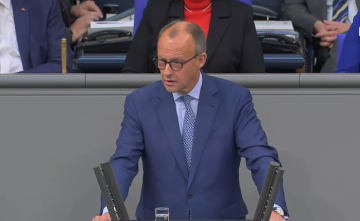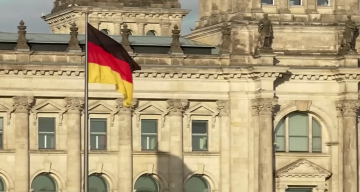In Germany, the issue of forming a new coalition is heating up amid political instability following the recent vote of no confidence against Chancellor Scholz's government in the Bundestag.
With early elections set for February 23, several key parties remain significant players on the political scene. According to the latest polls, the CDU/CSU bloc leads the rankings with approximately 31.5%, likely to be headed by Friedrich Merz in the upcoming coalition. The party had a chancellor in Angela Merkel for 16 years and is now returning to active politics after three years in opposition, presenting a genuine chance to regain power.

In second place is the pro-Russian ultra-populist bloc "Alternative for Germany" with 19.5%, which has nominated Alice Weidel for the chancellorship for the first time. However, due to a political "firewall" established by other parties, AfD will not be able to join the coalition, as most political forces refuse to collaborate with right-wing populists.
The third and fourth positions are held by Olaf Scholz's Social Democratic Party of Germany (SPD) at 16.5% and the Green Party at 11.5%. Both parties have experienced a decline due to conflicts within the coalition over the past three years, but one of them is likely to enter a coalition with the CDU/CSU, depending on the election results. Less significant but still important are the left-radical Alliance of Sahra Wagenknecht (around 8%), which is quickly gaining popularity in eastern Germany, and the Free Democratic Party (FDP), whose exit from the government was one of the reasons for the coalition's collapse.
